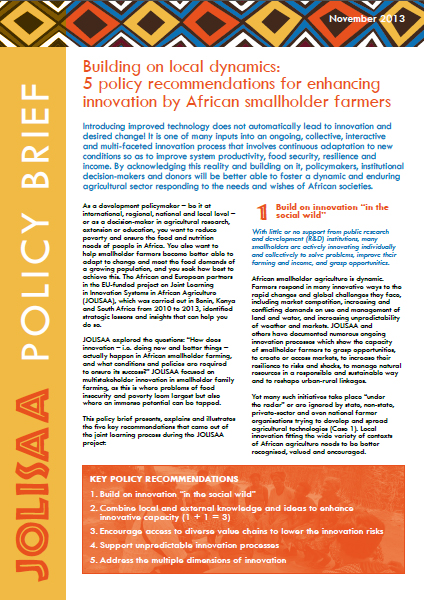
Introducing improved technology does not automatically lead to innovation and desired change! It is one of many inputs into an ongoing, collective, interactive and multi-faceted innovation process that involves continuous adaptation to new conditions so as to improve system productivity, food security, resilience and income. By acknowledging this reality and building on it, policymakers, institutional decision-makers and donors will be better able to foster a dynamic and enduring agricultural sector responding to the needs and wishes of African societies.
As a development policymaker – be it at international, regional, national and local level – or as a decision-maker in agricultural research, extension or education, you want to reduce poverty and ensure the food and nutrition needs of people in Africa. You also want to help smallholder farmers become better able to adapt to change and meet the food demands of a growing population, and you seek how best to achieve this. The African and European partners in the EU-funded project on Joint Learning in Innovation Systems in African Agriculture (JOLISAA), which was carried out in Benin, Kenya and South Africa from 2010 to 2013, identified strategic lessons and insights that can help you do so.
JOLISAA explored the questions: “How does innovation – i.e. doing new and better things – actually happen in African smallholder farming, and what conditions and policies are required to ensure its success?” JOLISAA focused on multistakeholder innovation in smallholder family farming, as this is where problems of food insecurity and poverty loom largest but also where an immense potential can be tapped.
This policy brief presents, explains and illustrates the five key recommendations that came out of the joint learning process during the JOLISAA project.
The policy brief in French is available here.
